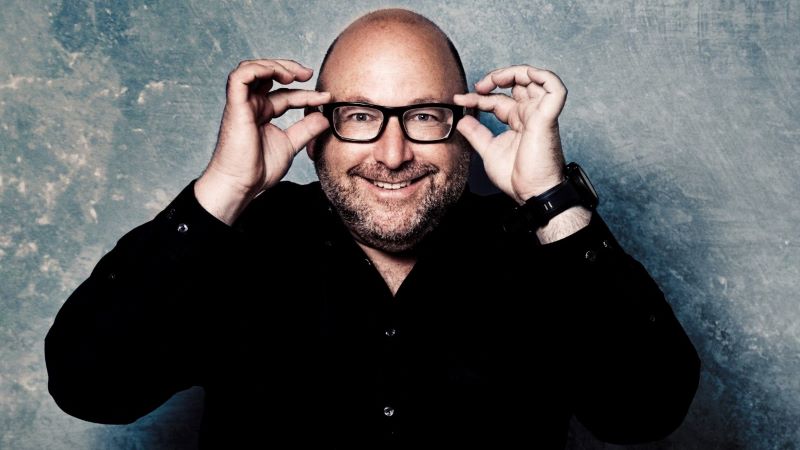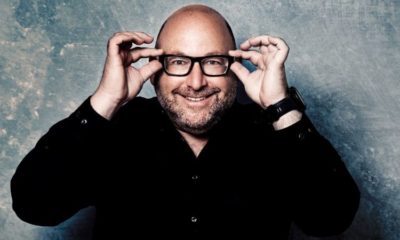
Voices

Antisocial life and times of an Israel supporter
I was raised to think that the greater the criticism, the greater the expression of love. Whereas I know that in theory, this isn’t healthy or accurate, I can thank my parents and grandparents for gifting me the ability to survive these difficult times.
There’s little doubt that my Germanic upbringing has prepared me for a life in social and mainstream media. Indeed, anyone raised in a Germanic home will confirm that the link between criticism and love is sometimes confusing. Which often results in the inability to distinguish between the two.
This is also why when told on X by Maggs Naidu that “You’re lying through every orifice when you imply that the ANC [African National Congress] is anti-Jew at any level. And you know that and still do it because you’re a shameless liar,” I spend more time considering the logistics of lying through my various orifices than I do being offended at being called a liar. A shameless one at that.
Since 7 October, I’ve been called more names than likely in my 50-something years. If I had a dollar for every time that I was called a racist or an apartheid supporter, I would have lots of rands. I’ve been told repeatedly that I support genocide, that I’m paid for by the Israeli government (if only), and that I’m a Zionist nationalist who has lost all perspective.
In another interesting case, I received a threatening letter from a well-known South African commentator because I had suggested that he showed a negative bias towards Israel. He demanded that I delete the tweet where I had said this or face a defamation charge. I did delete it, not because I was concerned about the legal consequences, but because I had clearly upset him. And that wasn’t what I wanted. I responded to try and point out an alternative view. Never to cause hurt.
I have had moments of hope. One such case was when ANC Secretary General Fikile Mbalula responded to a tweet where I accused the ANC of being antisemitic. “You are not correct Howard,” he said. Respectfully, and in an attempt to further dialogue I tweeted back, “I would, more than anything, love to be wrong. There is a terrible feeling of abandonment right now. The Jewish community has always valued the Constitution and South Africa. Help us feel safe again.” I didn’t think I would receive an immediate reply. But when none came, I checked, only to find that the ANC secretary general had blocked me.
It seems that he was less interested in furthering dialogue than I was.
Whereas my followers have increased over the past month, my South African social currency hasn’t. I have until now managed to balance my brand carefully, only weighing in on Israel where I felt it was necessary. I have always been aware of the “cost” of being branded the “Israel guy” in a broader South African context because the obsession with identity politics would reduce me to the status of a one-dimensional Zionist. And everything I write or say would be relative to Israel.
The events of 7 October and the subsequent reaction (or non-reaction) of the South African government left me no choice but to take this on. With existing platforms in mainstream publications, radio, and social media, remaining silent became less of an option. I also have the German upbringing and confidence to know that I’m not a racist or a bigot simply because someone calls me one. If I did consider standing back, the absurd but rapid increase in antisemitism that followed the Hamas terror attack – even before Israel responded – removed all hesitation. Like it or not, I had found myself on the frontline of the South African social media war.
The abuse has been relentless. Soon after 7 October, I found myself “proving” that Hamas had committed the atrocities that had been reported. I found myself defending what we knew to be true and searching for “acceptable” sources. Only to realise that none would qualify because the narrative that Israel had manufactured the events using artificial intelligence had already been birthed. What this meant was that no amount of proof would be acceptable. Because days after the event, with the blood of the murdered still on the floor, with bodies still being found and identified, with the dead not having been buried, and the missing still to be sought, the antisemites on X had determined the whole event to be an Israeli hoax.
So why bother? Why fight a tsunami with a beach bucket? For a few reasons. The main one being that I’m equipped to do so. I have the platform, some of the knowledge, and I have a voice. I can at least cause someone who doesn’t already hate to consider that there might be a different perspective. And because perhaps those who do hate will know that there’s someone who isn’t afraid to challenge them, and will think twice before posting.
But mostly I do it to be the voice for Jews, friends of Jews, and supporters of Israel who aren’t in the same position. Many potential defenders have been silenced by threats and many aren’t able to take the risk that’s inherent in being a vocal Israel supporter. This is the reality of our environment, and I strongly encourage people to consider this carefully before engaging. It’s uncomfortable. It’s lonely. And it’s often scary.
Or could be if one were sensitive. Or if one were to take offense to an eloquent conversationalist who just earlier tweeted the suggestion that I wasn’t telling the truth and that I should perhaps consider rethinking it. Or as he put it, “Ag kak man, take your hasbara propaganda and shove it up your ass!”






